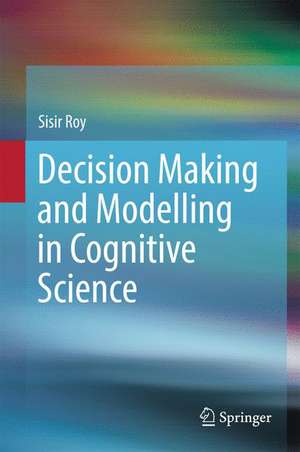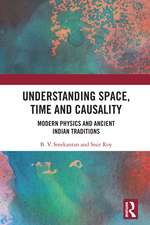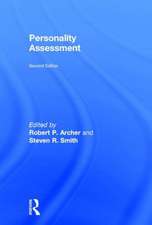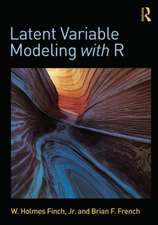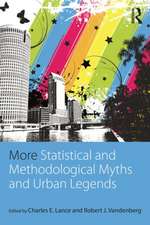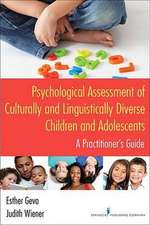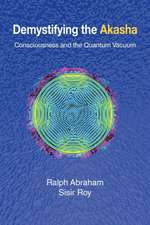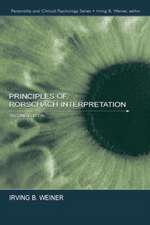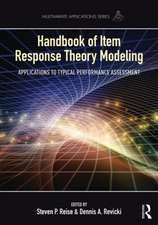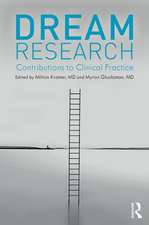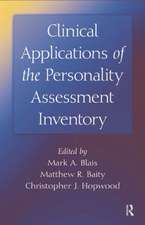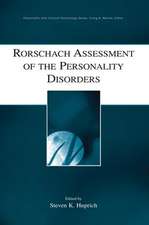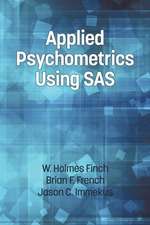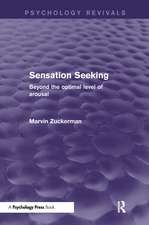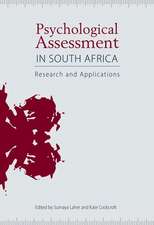Decision Making and Modelling in Cognitive Science
Autor Sisir Royen Limba Engleză Hardback – 4 noi 2016
| Toate formatele și edițiile | Preț | Express |
|---|---|---|
| Paperback (1) | 355.69 lei 38-44 zile | |
| Springer India – 16 iun 2018 | 355.69 lei 38-44 zile | |
| Hardback (1) | 391.61 lei 22-36 zile | |
| Springer India – 4 noi 2016 | 391.61 lei 22-36 zile |
Preț: 391.61 lei
Nou
Puncte Express: 587
Preț estimativ în valută:
74.93€ • 78.45$ • 62.00£
74.93€ • 78.45$ • 62.00£
Carte disponibilă
Livrare economică 17-31 martie
Preluare comenzi: 021 569.72.76
Specificații
ISBN-13: 9788132236207
ISBN-10: 8132236203
Pagini: 230
Ilustrații: XV, 165 p. 2 illus. in color.
Dimensiuni: 155 x 235 x 15 mm
Greutate: 0.5 kg
Ediția:1st ed. 2016
Editura: Springer India
Colecția Springer
Locul publicării:New Delhi, India
ISBN-10: 8132236203
Pagini: 230
Ilustrații: XV, 165 p. 2 illus. in color.
Dimensiuni: 155 x 235 x 15 mm
Greutate: 0.5 kg
Ediția:1st ed. 2016
Editura: Springer India
Colecția Springer
Locul publicării:New Delhi, India
Cuprins
Chapter 1. Introduction.- Chapter 2. Various Approaches to Decision Making.- Chapter 3. Predictability of Brain, Decision making and Cognition.- Chapter 4. New Empirical Evidences on Decision making and Cognition.- Chapter 5. Fundamental Concepts of Mathematics and Quantum Formalism.-Chapter 6. Complementary Principle, Concept of Filter and Cognition Process.- Chapter 7.Quantum Probability Theory and Non-Boolean Logic.- Chapter 8. Quantum Ontology and Context Dependence.- Chapter 9. Modern Neuroscience and Quantum Logic.- Chapter 10. Future Directions of Modelling the uncertainty in Cognitive Domain.
Recenzii
“Roy’s book is a valid effort for specialists in decision theory and for those who explore the future of tools to support the processes involved in decision making, tools which will be located at the intersection of Individual and collective intelligence and social computing, in an area of knowledge that is defined as scientific and well-founded reflection advances and attempts to explain the correspondence between decisions and reality.” (Melio Sáenz, ResearchGate, researchgate.net, June, 2017)
Notă biografică
Sisir Roy served as Professor at the Physics and Applied Mathematics Unit, Indian Statistical Institute, Kolkata during 1980-2014. He is a quantum physicist and his interest includes foundations of quantum theory, cosmology and brain function modelling, and higher order cognitive activities. He has published more than 150 papers in peer reviewed international journals and 12 research monographs/edited volumes by Kluwer Academic, World Scientific, etc. Professor Roy has worked as a visiting professor in various universities of USA and Europe. He currently holds the T.V. Raman Pai Chair Visiting Professorship at the National Institute of Advanced Studies, Indian Institute of Science, Bengaluru, India. His present focus of research is to pursue interdisciplinary research on quantum probability and cognitive science, information theory in living organisms, and neuroscience and consciousness. His forthcoming monographs include topics like quantum effects in biology, and the role of noise in living organisms.
Textul de pe ultima copertă
This book discusses the paradigm of quantum ontology as an appropriate model for measuring cognitive processes. It clearly shows the inadequacy of the application of classical probability theory in modelling the human cognitive domain. The chapters investigate the context dependence and neuronal basis of cognition in a coherent manner. According to this framework, epistemological issues related to decision making and state of mind are seen to be similar to issues related to equanimity and neutral mind, as discussed in Buddhist perspective. The author states that quantum ontology as a modelling tool will help scientists create new methodologies of modelling in other streams of science as well.
Caracteristici
Uses probabilistic arguments like quantum probability to explain new empirical evidence in the cognitive domain Discusses decision making and its underlying logic in the context of neuroscience Discusses epistemological issues from the Buddhist perspective Includes supplementary material: sn.pub/extras
